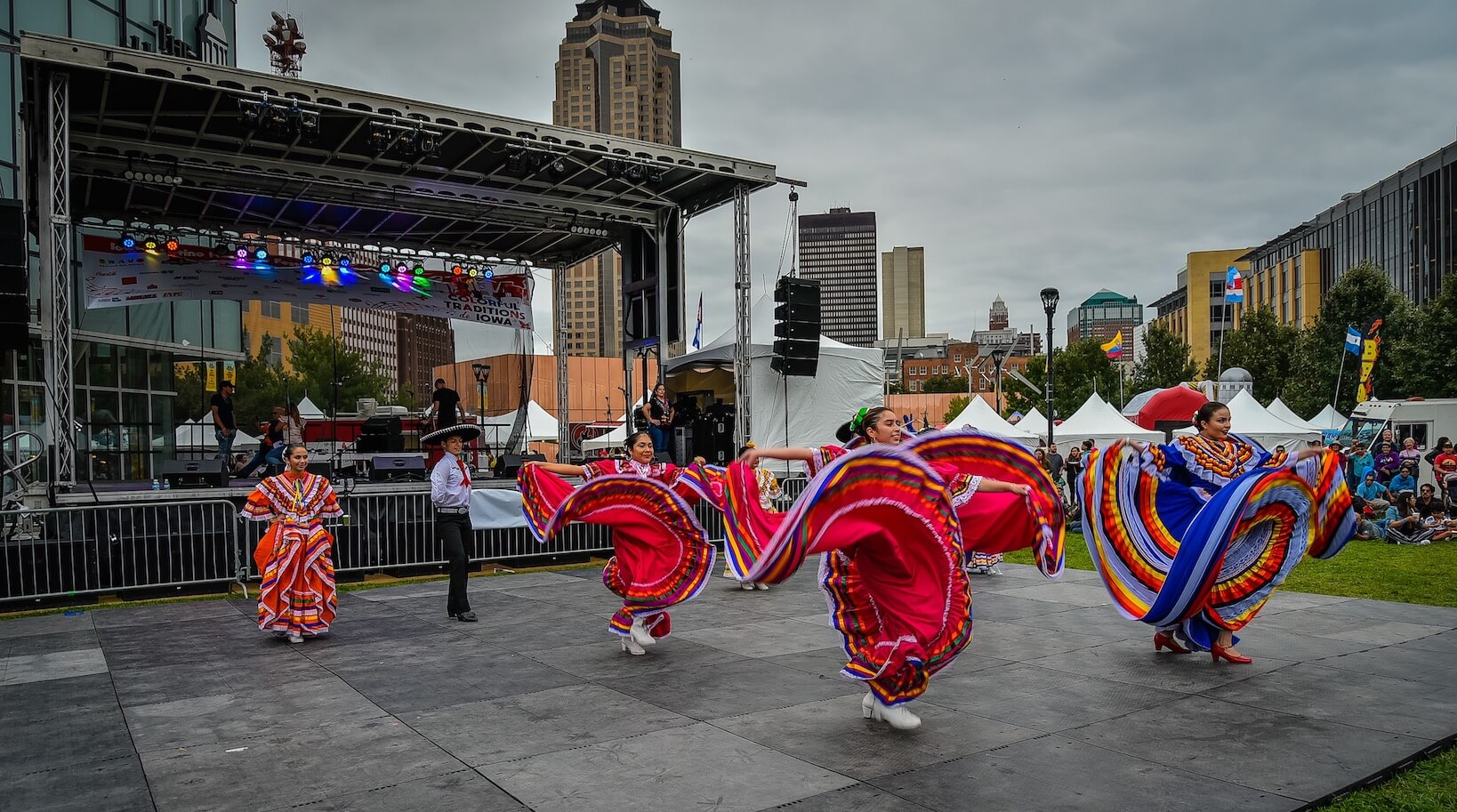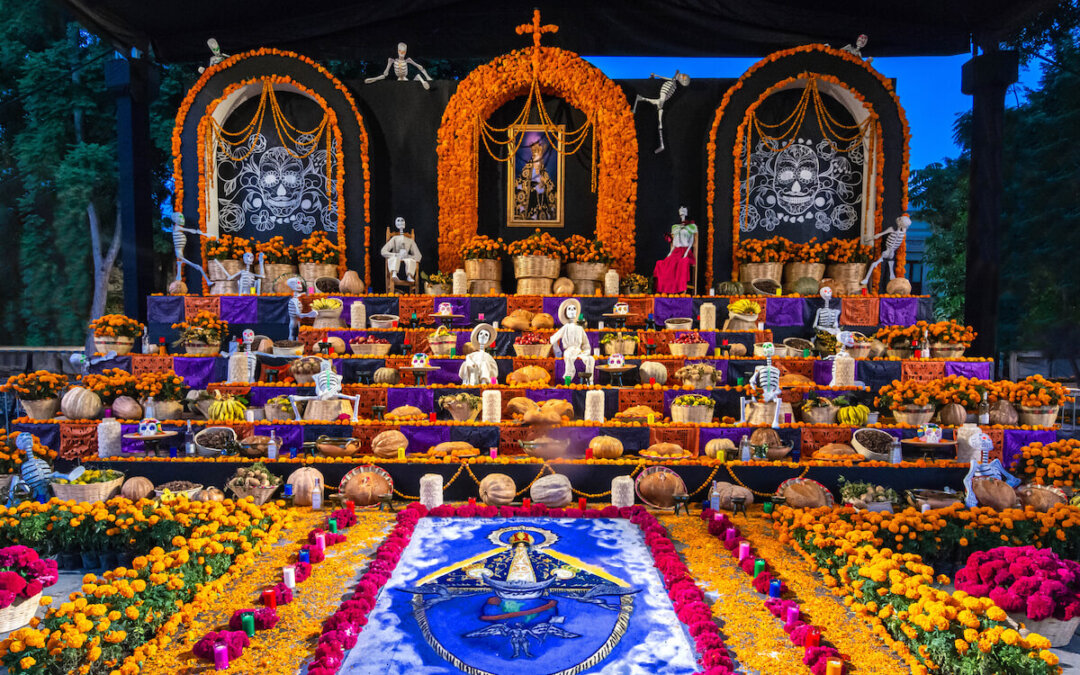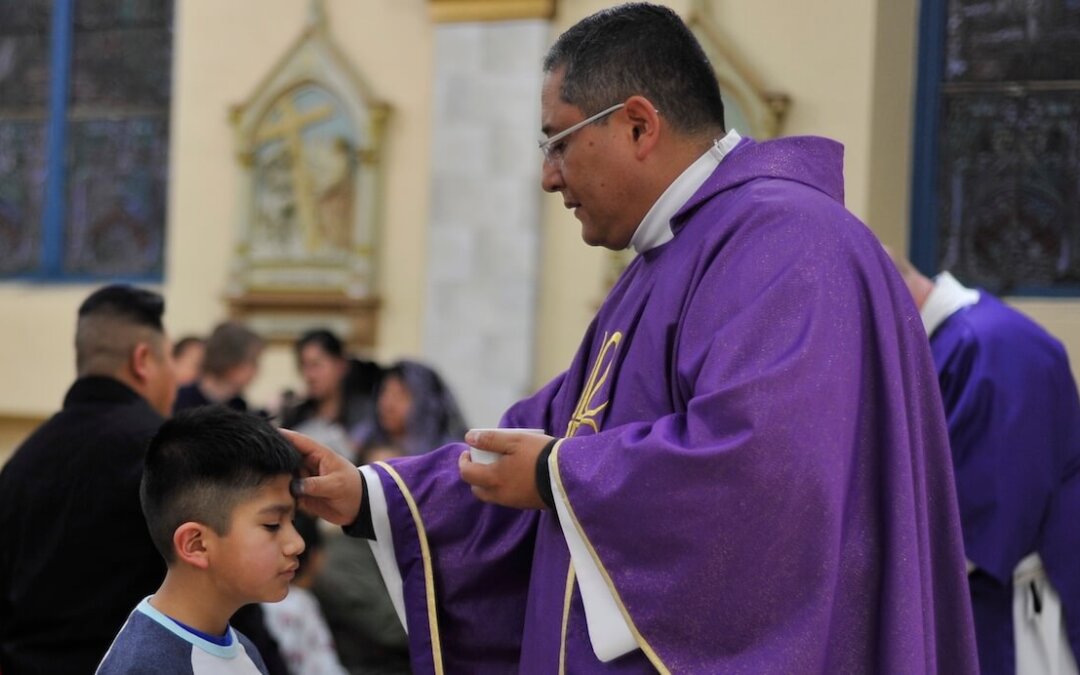
Photo via Latino Heritage Festival and Ruben Rodriguez
Hispanic Heritage Month started Sept. 15 and it is a time to celebrate the history, culture, and contributions of Latinos/Hispanics/Latinx to the United States.
It was California Congressman George E. Brown who introduced the first commemorative week in 1968. President George H.W. Bush became the first president to declare the period of Sept. 15-Oct. 15 as National Hispanic Month when he did so in 1989.
The dates chosen are significant. Sept. 15 is the anniversary of the independence from Spain for five Central American countries—Costa Rica, El Salvador, Guatemala, Honduras, and Nicaragua—and Sept. 16 is Mexican Independence Day while Chile’s is on Sept. 18.
[inline-ad id=”1″]
As far as the history of Latinos in Iowa, it is said that Latinos arrived in the late-1800s. Immigrants from Europe were already established in the Midwest and were successfully farming the land. Initially, Latinos came for agricultural work, later to work on the railroads, and then with the hopes of providing a better future for their families.
Today, the community continues to grow and is now nearly 200,000 strong, the largest minority group in Iowa.
With the growth of the Latino population came the desire to share and celebrate. The first statewide Iowa Latino Heritage Festival took place in 2002 after the original event scheduled for Sept. 11, 2001, was canceled for obvious reasons.
[inline-ad id=”2″]
The festival is a family event that seeks to celebrate, educate, showcase music, art, food, provide civic education, teach tolerance, and an overall appreciation of diversity.
Latino history is not usually a focus in American early education, giving way to troublesome ideas of who Latinos are or where they come from. There is a Mexican saying in Texas and other southern border states that goes like this: “We did not cross the border, the border crossed us.”
Dismissing history can have implications that may determine how communities welcome diversity. For instance, learning about the Mexican-American war is pivotal in understanding what happened to Mexicans in northern Mexico after a new border was drawn.
[inline-ad id=”3″]
At the end of the war, The Treaty of Guadalupe Hidalgo was signed in 1848 and it allowed the United States to purchase the territory that eventually became the states of Arizona, California, Colorado, Nevada, New Mexico, Texas, and Utah for $15 million and displaced millions of Mexican citizens. Indeed, the border moved, they did not cross it. Although, that premise has changed over time due to political unrest, violence, and economic hardship in Latin America.
Celebrating Hispanic Heritage Month is important now more than ever as Latinos and other minorities have been under increased political attack in recent years.
So in line with Iowa Starting Line’s commitment to Immigrant Voices, we will celebrate Latino contributions by honoring and highlighting Iowa Latinos who have made an impact in the lives, history, and future of Latinos in our state.
By Claudia Thrane
09/15/21
[inline-ad id=”0″]
Politics

It’s official: Your boss has to give you time off to recover from childbirth or get an abortion
Originally published by The 19th In what could be a groundbreaking shift in American workplaces, most employees across the country will now have...

Trump says he’s pro-worker. His record says otherwise.
During his time on the campaign trail, Donald Trump has sought to refashion his record and image as being a pro-worker candidate—one that wants to...
Local News

No more Kum & Go? New owner Maverik of Utah retiring famous brand
Will Kum & Go have come and gone by next year? One new report claims that's the plan by the store's new owners. The Iowa-based convenience store...

Here’s a recap of the biggest headlines Iowa celebs made In 2023
For these famous Iowans, 2023 was a year of controversy, career highlights, and full-circle moments. Here’s how 2023 went for the following Iowans:...




